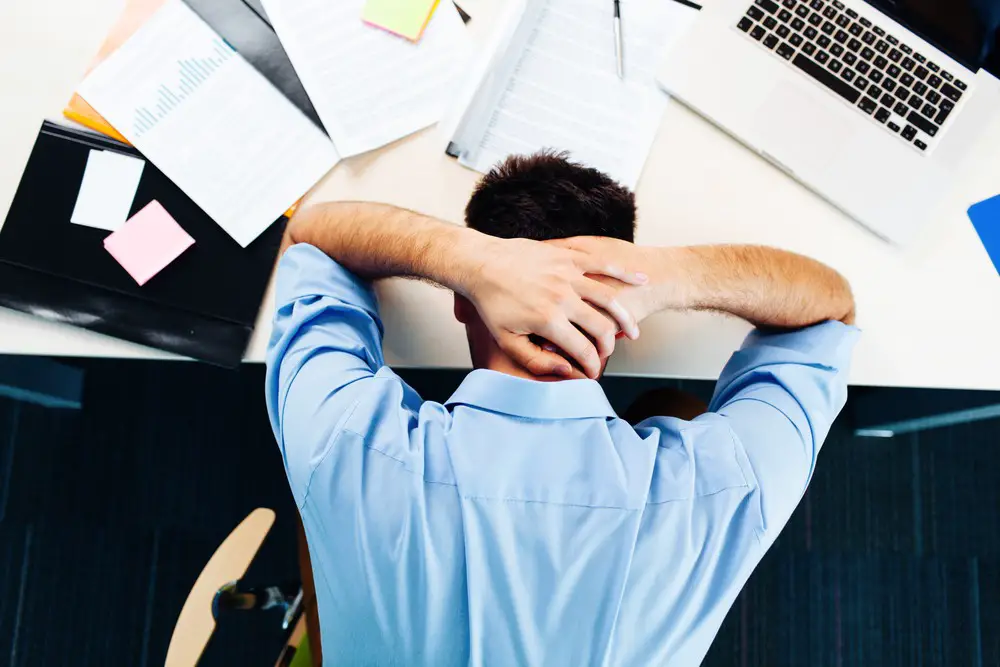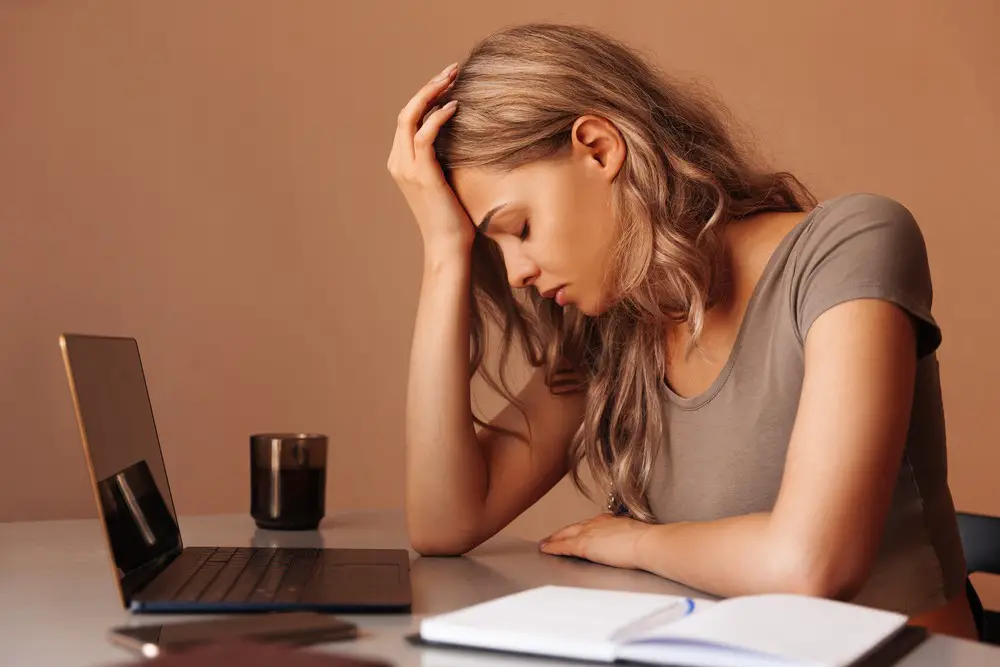As a BetterHelp affiliate, we receive compensation from BetterHelp if you purchase products or services through the links provided
Sometimes, the pressures of daily life become too much. Psychosocial stress is the term used to describe the psychological and social strain caused by these pressures.
Psychosocial stress can come from a variety of sources. It may be caused by work-related stress, family life, relationships, or even world events. When you’re under too much stress, you may feel unable to cope.
What is Psychosocial Stress?
Psychosocial stress is “the adverse reaction people have to excessive pressures or other demands placed on them”. It occurs when people perceive that they cannot cope with the demands placed on them. Triggers for psychosocial stress can be both internal and external.
The symptoms of psychosocial stress include a range of physical, emotional, cognitive, and behavioral symptoms. Fatigue, headaches, restlessness, and poor concentration are all general indicators of psychosocial stress.
What are Psychosocial Stressors?
Psychosocial stressors or triggers are anything that can cause psychosocial stress. As mentioned above, these can be both internal and external triggers.
Internal Psychosocial Stressors
An internal psychosocial stressor includes negative self-talk or unrealistic expectations. These are often thoughts or beliefs that we have about ourselves that lead to feelings of chronic stress and anxiety. When we believe we are not good enough or can not handle the demands placed on us, it can lead to a psychosocial stress response.
Some common internal triggers for psychosocial stress include
- Negative self-talk
- Unrealistic expectations
- Perfectionism
- Catastrophizing
External Psychosocial Stressors
An external psychosocial stressor can include a high-pressure job or a difficult relationship. These situations or relationships are often outside our control but can still harm our mental health.
Some common external triggers for psychosocial stress include
- A demanding job
- A difficult relationship
- Financial problems
- Chronic health issues
The Cycle of Psychosocial Stress
Psychosocial stress can often lead to a vicious cycle. This is because the more stressed we feel, the more difficult it can be to cope with everyday life and the demands placed on us. This can then lead to even higher stress levels and anxious feelings.
The cycle of psychosocial stress often looks like this:
- We are faced with a demand or challenge.
- We feel stressed about the demand or challenge.
- We find it difficult to cope with stress.
- This leads to more stress and anxiety.
- The cycle continues.
Breaking the cycle can seem difficult, but it is essential to remember that we can all find ways to manage stress.

The Effects of Psychosocial Stress
Psychosocial stress can affect our physical health and lead to adverse health outcomes. It can contribute to high blood pressure, heart disease, cardiovascular disease, and stroke. It can also make us more susceptible to infections and colds.
In addition to physical health problems, psychosocial stress can lead to mental health problems like anxiety, depression, and post-traumatic stress disorder (PTSD). Stress vulnerability is also linked to poorer mental health outcomes. People already struggling with mental health issues may find it harder to cope with stress.
When we experience psychological stress, our bodies release stress hormones like cortisol. These hormones are designed to help us deal with short-term stressors. However, when we are constantly under stress, these hormones can hurt our health. Over time, our stress reactions can lead to physical health problems as well as mental health problems.
How to Cope with Psychosocial Stress
Fortunately, there are things we can do to manage psychosocial stress. Here are some tips:
- Talk to someone you trust about what you’re going through. Talking openly and honestly about your experiences can help you feel better and help you find solutions to your problems.
- Exercise regularly. Exercise releases endorphins, which have mood-boosting properties.
- Eat a healthy diet. Eating nutritious foods helps your body cope with stress better.
- Make time for yourself every day. Dedicate some time each day to do something you enjoy, even if it’s just reading a book or taking a leisurely walk.
- Try to look at things from a different perceptive. Instead of seeing the glass half empty, try to see it half full. This may not be easy, but it can help you feel better about your situation.
- Practice relaxation techniques like deep breathing or meditation. These can help you feel calmer and more in control.
- Seek professional help if needed. If you’re struggling to cope with psychosocial stress on your own, don’t hesitate to seek help from a mental health professional.
People will find that different coping strategies work better for them at other times when they’re managing stress. It’s essential to experiment and see what works best for you. Combining different coping strategies is most effective at lowering stress levels.
Seeking Help for Psychosocial Stress
If you’re struggling to cope with psychosocial stress, don’t hesitate to seek help from a mental health professional. A therapist can help you identify and manage the stressors in your life. They can also teach you coping and relaxation techniques to help you feel better.
If you’re struggling with anxiety or depression, medication may also be an option. Don’t hesitate to seek help if you’re struggling to cope. There is no shame in seeking help for mental health problems. Mental health problems are real and treatable, so don’t hesitate to seek help if you need it.

Conclusion: Coping with Psychosocial Stress
Psychosocial stress is a type of stress that is caused by our environment and relationships. It can have a profound effect on our physical and mental health. Fortunately, there are things we can do to manage psychosocial stress. If you’re struggling to cope with psychosocial stress on your own, don’t hesitate to seek help from a mental health professional.
FAQs
- 3 Ways Wearing a Hat Can Help Lower Your Stress Levels - April 19, 2025
- Breaking the Silence: Why Men’s Mental Health Matters More Than Ever - April 15, 2025
- How to Transform a Home’s Patio Space into a Relaxing Space - March 23, 2025
This site contains affiliate links to products. We will receive a commission for purchases made through these links.



